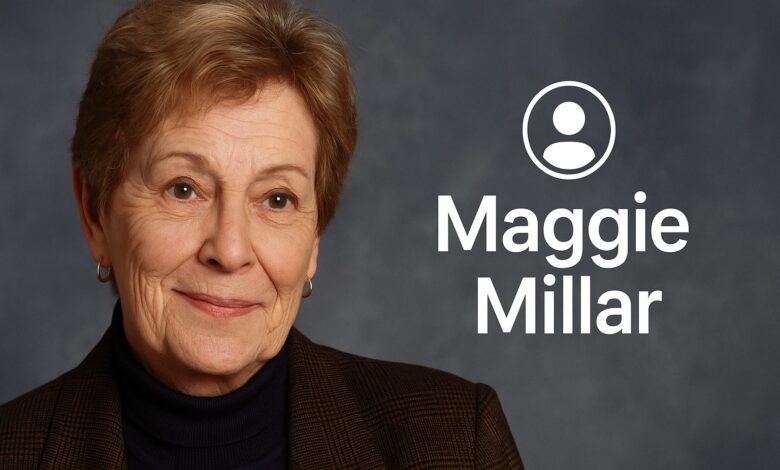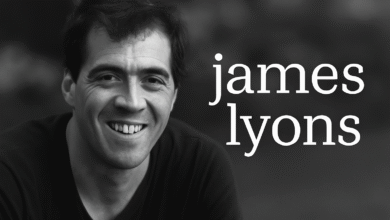Maggie Millar: Iconic Australian Actress and Advocate for Change
From Soap Star to Social Advocate — The Remarkable Life and Legacy of Maggie Millar

Introduction to Maggie Millar
Maggie Millar is a renowned name in Australian television and theatre. With a career spanning several decades, she left an indelible mark on audiences through unforgettable roles in popular series like Bellbird, The Sullivans, Prisoner, and Neighbours. But beyond her compelling screen presence, Maggie Millar is also admired for her real-life roles as an artist, advocate, and community voice.
This article explores Maggie Millar’s inspiring journey — from her early beginnings in Sydney to becoming a household name and community figure in Australia.
Early Life and Education
Where It All Began
Born on January 6, 1941, in Strathfield, a suburb of Sydney, Maggie Millar’s roots were firmly planted in Australian soil. Adopted at birth, she later discovered her adoption in her late teens, a revelation that would shape much of her advocacy work in adulthood.
Academic and Artistic Foundations
Maggie began acting early and quickly gained attention for her talent. Her dedication earned her a scholarship to study drama. She furthered her training at the Royal Academy of Dramatic Art (RADA) in London, one of the most prestigious acting schools in the world. Her time at RADA honed her skills, giving her a strong foundation in stage and screen performance.
Career Milestones of Maggie Millar
Breakthrough in Australian Television
Maggie Millar’s breakthrough came in the early 1970s when she took on the role of Georgia Moorhouse in the rural soap opera Bellbird. Her portrayal was so captivating that she appeared in over 680 episodes, establishing herself as a significant television figure in Australia.
Other Major Roles
-
Elizabeth Bradley in The Sullivans (1981) – A critical and fan favorite.
-
Marie Winter in Prisoner (1981–1984) – One of her most iconic and memorable roles.
-
Rev. Rosie Hoyland in Neighbours (2002–2003) – A comeback role that brought her to a new generation of viewers.
Maggie was known for taking on strong, often complex female characters, offering depth and authenticity in every performance.
Film Contributions
Though known primarily for her television work, Millar also appeared in films such as:
-
The Mango Tree (1977)
-
Phar Lap (1983)
-
Evil Angels (1988)
-
Malevolence (2016 – short film)
Her film performances complemented her television roles, showcasing her adaptability and broad acting range.
Theatre and Stage Work
A Deep Connection to the Stage
Maggie Millar’s love for the theatre never faded. Throughout her career, she remained committed to stage performance, appearing in productions such as:
-
The Crucible
-
Three Sisters
-
Miss Julie
-
Run, Run Away
Her stage performances won critical acclaim and reinforced her reputation as a versatile and skilled actress.
Awards and Achievements
Recognition and Respect
Maggie Millar’s contributions to acting were formally recognized when she won the Logie Award for Best Individual Performance in 1976 for an episode of Homicide. She also received a Sammy Award the same year for her work on the same show.
In 2007, she was inducted into the Victorian Honour Roll of Women for her commitment to community service, particularly for adoptee rights and body image awareness.
Personal Life and Advocacy
Family and Personal Challenges
Maggie Millar was married twice. Her first marriage, to a German man, ended in 1976, but it gave her a son named Benjamin. She later married Ian Robinson, a theatre critic and schoolteacher, in 1984.
In 2001, she was diagnosed with type 2 diabetes, which became a turning point in her personal journey. This led her to co-create a play titled A Pill, A Pump and A Needle, designed to raise awareness about diabetes in a human-centered way.
Advocacy for Adoption and Mental Health
Her discovery that she was adopted sparked a lifelong interest in adoption law reform and support networks for adoptees. She worked with groups like Jigsaw and became a public speaker, sharing her story to inspire others and foster change.
Life After Acting
From Actress to Artist
After retiring from regular screen roles, Maggie Millar pursued her love of painting. Her pastel art was showcased in a 2000 exhibition, further proving her creative spirit extended far beyond acting.
She remained active in community theatre and literary readings, including a notable performance of Maggie Millar Reads Molly Bloom in 2018.
Maggie Millar’s Legacy
Maggie Millar’s story is more than that of a talented actress — it’s the narrative of a woman who used her platform to drive social change. From adoptee rights to health advocacy, and from screen roles to stage and visual arts, her impact is lasting and layered.
She represents resilience, adaptability, and compassion — qualities that not only enriched her performances but also empowered those who followed her journey.
Frequently Asked Questions (FAQ)
Who is Maggie Millar?
Maggie Millar is a veteran Australian actress known for her roles in Bellbird, The Sullivans, Prisoner, and Neighbours. She is also an artist and advocate.
What is Maggie Millar best known for?
She is best known for playing Marie Winter in Prisoner and Rev. Rosie Hoyland in Neighbours.
Did Maggie Millar win any awards?
Yes, she won the 1976 Logie Award for Best Individual Performance and the 1976 Sammy Award for her role in Homicide.
Is Maggie Millar still active in acting?
As of her latest update, she retired from mainstream acting around 2018 but remained involved in community arts and performances.
What advocacy work has Maggie Millar done?
She has advocated for adoptee rights, raised awareness about diabetes, and supported mental health and body image initiatives.
Conclusion
Maggie Millar is a name that echoes through Australian television history. With a compelling presence on stage and screen and a compassionate role in community advocacy, she exemplifies the power of celebrity used for good. Her life story is one of courage, creativity, and commitment — qualities that continue to inspire generations of actors and activists alike.
From her humble beginnings in Strathfield to becoming a national treasure, Maggie Millar’s legacy lives on — not just through her roles but through the change she brought to the world around her



